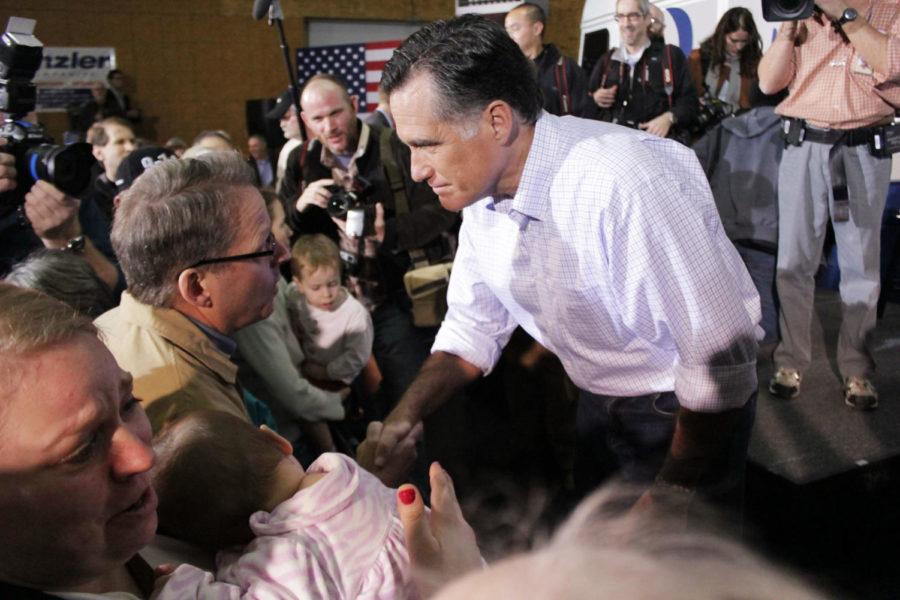Romney wins Florida primary, pushes back Gingrich
Mitt Romney, former Republican governor of Massachusetts, meets with supporters during a campaign stop at Kinzler Construction in Ames on Thursday, Dec. 29. Romney was the projected winner in Flordia’s primary on Jan. 31.
January 31, 2012
Presidential hopeful Mitt Romney won the Florida Republican primary Tuesday night after a bitter fight with former Speaker of the House Newt Gingrich over the Sunshine State.
The former Massachusetts governor was able to bring in 47 percent of the Floridian vote while Gingrich was only able to muster 32 percent. Former Pennsylvania Sen. Rick Santorum came in third with 13 percent, and Texas Rep. Ron Paul came in fourth with 7 percent.
The battle for Florida got intense after Gingrich was able to pull out a victory in the South Carolina primary on Jan. 21, and many thought Gingrich would be hard to slow down going into Florida. However, after a series of attack advertising against Gingrich, defiant debate performances from Romney and strong polling from the Latino community in Florida, Romney was able to swing past Gingrich and take a commanding double-digit lead in Florida and pull out a victory in the key state.
In his victory speech, Romney highlighted the need for party unity as election day gets closer and closer.
“A competitive campaign does not divide us, it prepares us,” Romney said in his victory speech. “When we come back in August, we will be a united party with a winning ticket.”
Romney also used his speech to hit the president on economic issues.
“Leadership is about taking responsibility, not making excuses,” Romney said. “Well, Mr. President, you were elected to lead, you chose to follow and now it’s time to get out of the way.”
Gingrich, despite his loss to Romney, has vowed to take his campaign all the way to the convention. This puts the Republican Party in a predicament because having a split party going into the national convention — especially as the challenging party — has historically had a hard time unifying its base, which makes it all the more difficult to defeat an incumbent president.
The campaigns of the remaining four candidates will now move to Nevada for the state’s caucus Saturday, followed by Minnesota, Missouri and Colorado next Wednesday. After the Florida primary, Romney has taken a commanding lead with 66 pledged delegates as opposed to 25 for Gingrich, 10 for Paul and eight for Santorum; 1,144 delegates are needed to secure the Republican nomination at the party convention in Tampa, Fla., in August.

















